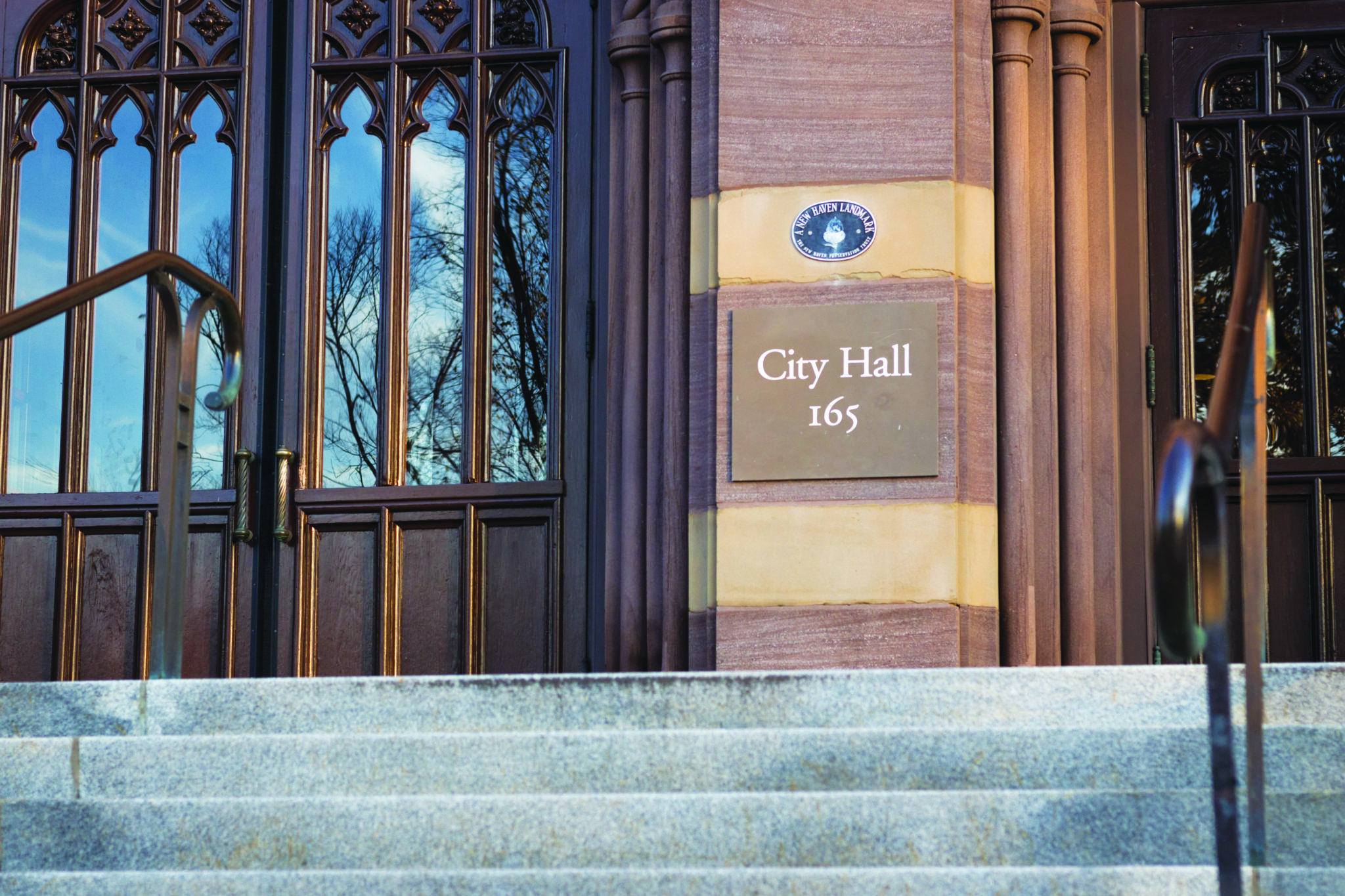
Daniel Zhao
Mayor Toni Harp released her full proposed budget for the 2019–20 fiscal year on Friday.
The document, which looks to keep operations at essentially the same level as the budget for the current fiscal year, is now up for debate and discussion by the Board of Alders. While the proposal is relatively consistent with the past year’s trajectory, several debates will likely capture the attention of residents and lawmakers alike, including discussions about sources of the city’s revenue stream, given its already limited property tax base. This year, the city’s “Grand list” — which outlines the total value of taxable property — decreased from last year’s, despite ongoing and increasing development and investment in the city.
“The value of the city’s Grand list decreased slightly since last year,” mayoral spokesperson Laurence Grotheer told the News. “Some parcels changed hands and became tax exempt. It takes a few years for each new development to become fully taxable.”
The budget, which was published online last Friday and distributed to alders on paper, outlines the breakdown of $556.6 million in operations for the next fiscal year, which begins July 1. The size of the city’s general fund grew by about 1.5 percent from last year’s numbers, which totalled $547.1 million.
In Harp’s proposal, the general fund dollars will largely be allocated similarly to previous years. Education will remain the city’s largest expenditure — the budget allotted it $188 million, or approximately one third of total funds — despite the fact that Harp proposed giving the Board of Education a modest $750,000 increase instead of the tens of millions of dollars for which New Haven Public Schools Superintendent Carol Birks asked to keep the system afloat.
Other major costs for the city include employee benefits and public safety, for which Harp has allocated $92.6 and $80.4 million respectively. The city will also spend nearly $50 million on debt service payments.
Expenditures, in general, have risen across the board. Union-negotiated contracts dictate bumps in salaries in certain departments. In nonunion departments, employees — many of them City Hall administrators — will also see modest raises under Harp’s proposed budget. In the Mayor’s Office, the Executive Administration’s salaries will increase to $909,042 from $862,853. Salary dollars in the Office of the Chief Administrative Officer will jump from $309,628 to $423,976.
New Haven will foot the bill for these expenditures through a similar slew of revenue sources as last year. In Gov. Ned Lamont’s SOM ’80 proposed budget for the state, New Haven was allocated a similar level of funding as last year — the total number represents a 2 percent bump. Two-thirds of state dollars, which will collectively make up 38 percent of the city’s revenue in the upcoming year, are specifically earmarked for education.
But as costs continue to grow, the city’s single largest source of revenue is actually on the decline. The only way a municipality can raise substantial money on its own is through the collection of property taxes. Last summer, Harp instituted an 11 percent property tax hike to increase revenue after state funding came up shorter than expected. This year — as Harp prepares to battle for a fourth term — no further increase was instituted.
But the amount of money the city will get from certain property taxes is actually lower this year than last. Harp projects $278,560,094 of revenue from property taxes to underwrite half the total budget. This decrease is a result of the fact that the city’s Grand list — which assesses the total value of taxable property, and thus dictates how much revenue can be raised without increases in the tax rate — decreased.
Justin Elicker FES ’10, SOM ’10, who is challenging Harp for mayor this year, told the News that the decrease is a “surprising issue,” especially given the new developments and projects undertaken in the past fiscal year.
The budget prepared by Harp’s office shows that, from 2017 to 2018, the total value of taxable property decreased. Given Yale’s tax-exempt status as a nonprofit university and its vast holdings in the city, New Haven already has one of Connecticut’s highest levels of property from which City Hall cannot collect revenue. 8.46 percent of the city’s total property value is exempt from tax.
Gross taxable real estate decreased from $5.754 billion to $5.685 billion — a drop of $68.7 million. Increases in gross taxable personal property and motor vehicles could not completely repair the seven-digit drop in real estate value, and the city decreased its total taxable value by $1.48 million. Combined with a $13.7 million increase in the value of total exemptions, the net taxable Grand list decreased by $15 million.
Ward 1 Alder Hacibey Catalbasoglu ’19 told the News that the Grand list is a “very complex issue” but that the drop was “very alarming.”
“The only way a city can raise revenues is through property taxes,” Catalbasoglu said. “The grand list shows us how much that property is valued.”
The Board of Alders Finance Committee will hold several public hearings and workshops on the budget in the coming months. The first public hearing will be on March 11 at the Hillhouse High School Auditorium.
Angela Xiao | angela.xiao@yale.edu







